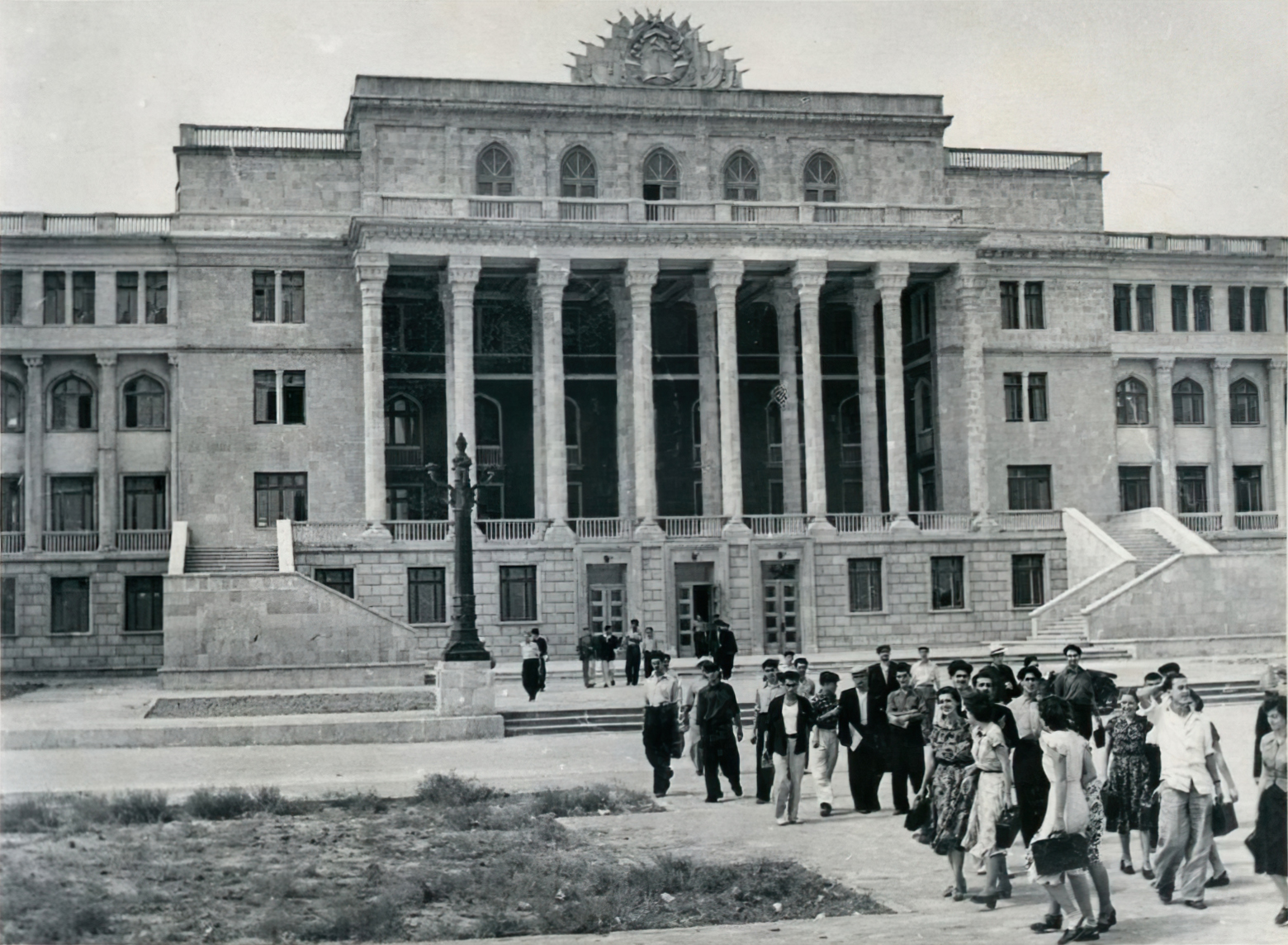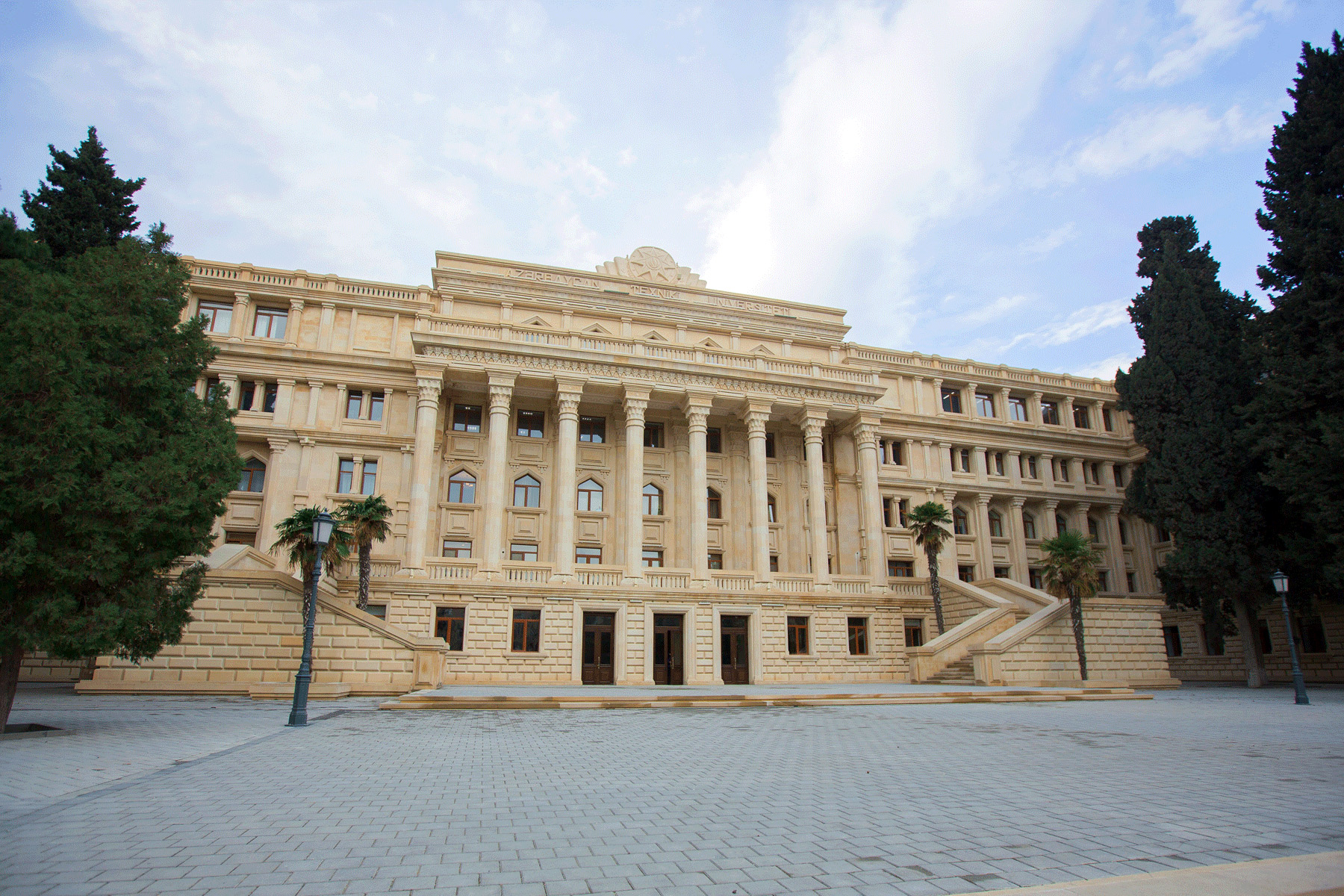The foundation of technical education in Azerbaijan was laid for the first time on November 10, 1887, with the creation of a 4-class technical school in Baku by the Baku City Duma. Here, carpentry, blacksmithing, ironworking, and locksmithing workshops were operating. According to the curriculum, 3 hours per day were allocated for studying general subjects and 7 hours for mastering specialties. In 1900, there were 124 students studying there. Until 1905, 50 graduates in the mechanical engineering department and 55 graduates in the construction department were produced from this school.
In January 1905, this school began operating as the Mechanical-Construction Middle Technical School. In 1910, they trained specialists in the fields of oil engineering and electromechanics in the Mechanical department. The school also had workshops for locksmithing-turning, engraving, and sculptor-stonemasonry. In 1916, the middle technical school had 494 students, with only 20 of them being Azerbaijani.
In the mid-1918, according to the decision of the Azerbaijan Democratic Republic, the Mechanical-Construction Middle Technical School was renamed as Polytechnic Institute. With 188 students, the educational institution operated departments in Oil Industry, Electromechanics, and Architecture-Construction. At that time, only 12 people became engineer of 62 individuals who had received higher education in Azerbaijan.
On November 14, 1920, based on the decree of Nəriman Nərimanov, the president of the Azerbaijan Revolutionary Committee, the Baku Polytechnic Institute, which trained higher technical specialists, was established on the basis of the Baku Polytechnicum, which included departments in Oil Industry, Electromechanics, and Architecture-Construction. This institute consisted of faculties in Oil Industry, Electromechanics, Civil Engineering, Agriculture, and Economics.
In 1923, the Baku Polytechnic Institute was renamed as the Azerbaijan Polytechnic Institute.
In 1930, since the Azerbaijan Polytechnic Institute was affiliated with "Alliance Oil," it was renamed as the Azerbaijan Oil Institute. Based on the faculties of Agriculture and Civil Engineering of the Azerbaijan Polytechnic Institute, Agricultural Institutes were established in Ganja in 1929 and Construction Institutes in Baku in 1932.
In January 1934, the Azerbaijan Oil Institute and the Construction Institute were merged and named the Azerbaijan Industrial Institute. The Azerbaijan Industrial Institute consisted of faculties in Architecture-Construction, Oil Mechanics, Energy, Oil-Refining, Railway, and Engineering-Economics.
The training of engineering personnel mainly for the oil sector at the Azerbaijan Industrial Institute, the importance of the restoration and development of all sectors of the national economy after the Second World War, the importance of opening new industrial enterprises, the need to train engineering personnel in various fields, and the presence of a certain intellectual and technical potential in Azerbaijan allowed the restoration of the Azerbaijan Polytechnic Institute.
One of the leading universities in the field of technical education in the Republic of Azerbaijan, the current Azerbaijan Technical University (AzTU), was recreated in November 1950 in Baku under the name Azerbaijan Polytechnic Institute (AzPI), including faculties of Mechanical, Construction, Railway, and Hydromelioration.
During the years 1950-1955, the faculties of the institute operated in various locations. From 1955, the institute was relocated to its current building, encompassing all faculties. This impressive building, which combines the finest styles of Western and Eastern architecture, has been designed to provide students with the best conditions for acquiring profound knowledge.
In 1975, based on the foundation of AzPI, two new higher technical schools were established in Azerbaijan: the current Azerbaijan University of Architecture and Construction and the Ganja Technological Institute.
Starting from 1978, AzPI has begun training a large number of specialists for various republics of the USSR, as well as several countries in Asia, Africa, and Latin America. More than 12,000 foreign students have studied at the university to date. In different periods, students from over 40 different countries have studied and continue to study at the university.
In 1983, the university received the temporary banner of the Ministry of Higher and Secondary Special Education of the USSR and the first-degree cash prize for its achievements in teaching methodology and scientific-technical fields.
Since 1991, the institute has been known as the Azerbaijan Technical University. Currently, the university offers bachelor's degrees in 36 specialties covering fields such as mechanical engineering, metallurgy, computer science and technology, electrical engineering, telecommunications, transportation, economics, and others. Additionally, there are over 100 specializations available for master's degrees.
The university operates faculties in Transportation and Logistics, Energy and Automation, Metallurgy and Materials Science, Mechanical Engineering and Robotics, Information and Communication Technologies, Economics and Management, and Specialized Engineering and Technology.
The scientific achievements of the university are published in the scientific and technical journals "Scientific works" and "Machine science". The university library and reading rooms with more than 500,000 books, as well as 20 educational and multimedia rooms with more than 400 personal computers, and specialized laboratories serve students and employees.
The university collaborates closely with the relevant structures of the UN, UNESCO, TRACECA, and other international organizations, as well as many recognized universities in several foreign countries. Equipped with modern facilities, the university's classrooms and laboratories follow educational plans based on the Bologna Process and credit system, enabling over 9,000 undergraduate and over 2,000 graduate students to address contemporary scientific and technical issues. The university actively participates in addressing economic issues and contributing to social life in our country.
In 1981, the great leader Heydar Aliyev visited the Azerbaijan Polytechnic Institute and met with students and faculty members.
To date, AzTU has trained over 120,000 engineers (bachelor's and master's degrees) in various specialties.
The students and alumni of AzTU have fought in the forefront of all wars fought for the liberation of our lands. Fifty-eight of them have reached the summit of martyrdom. Ten graduates of AzTU have been honored with the title of "National Hero of Azerbaijan."
The alumni of AzTU have rendered great services in the development of various industrial sectors in many countries around the world. They successfully lead factories, ministries, prominent industrial complexes, state committees, and large institutions. Graduates of our university have led Azerbaijan from 1982 to 1988, served as Prime Ministers of the Republic of Azerbaijan at different times, and worked as Deputy Prime Ministers.